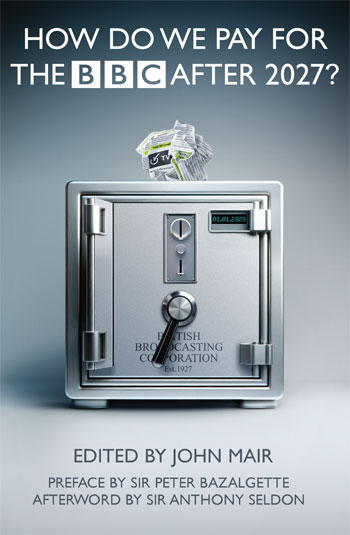
The following is the ‘afterword’ from the new book, ‘How do we pay for the BBC after 2027?’:
The BBC cannot and should not continue in its present guise into its second century. This book is a potent contribution to the debate on the future funding of the BBC, but the debate cannot go on forever.
No perfect solution exists. We need to go for the best possible fix and we need to do it now, rather than, as some of the contributors suggest, debate it for a decade in ever increasing circles.
The solution is simple. It’s been argued before. It’s not without flaws. But none of these should rule it out.
Amidst all the questions aired in this book, the most potent is this: what can the BBC best do, that no other broadcaster can do, or do as well?
It’s not documentaries. Nor entertainment. Nor sport.
It’s News.
In the next century, truth and balanced comment will come under attack as never before — by governments and by private institutions and individuals, using AI in ways that no one can even begin to imagine now.
The BBC is trusted in this country, and globally. Conservative governments since 2010 might, as Peter York writes, have tried to destroy it, but its record for impartially has withstood the challenge. Now, as ever, left and right think the BBC is batting for the other side, so it must indeed be doing something right.
The BBC should be split into BBC News and BBC Global. The BBC brand name is worth hundreds of millions of pounds, and companies should bid for the right to use it, quality-controlled by the BBC’s senior leadership team, to present content on BBC channels on every aspect in which the BBC currently operates, except news. The money raised from those awarded the contracts will then fund BBC News, making it independent of the licence fee and government.
BBC News, at the same time, needs improvement, for all the current strengths. Too much has become stale and predictable, not least the four flagship Radio 4 daily programmes. Today, in particular, has lost its way. Cheerful banter, no bad thing in itself, is no substitute for depth, originality, and style.
If Lord Reith were alive today, he would probably think this was a crazy solution. So what! He’s dead — and so will the BBC be unless it shows real leadership and imagination.

This afterword appeared at the conclusion of the new book, ‘How do we pay for the BBC after 2027?’, edited by John Mair and available to purchase from Amazon.










